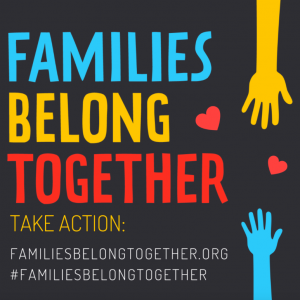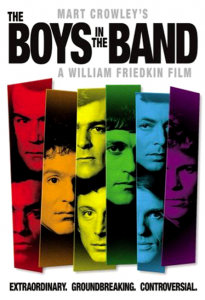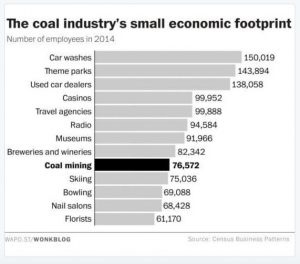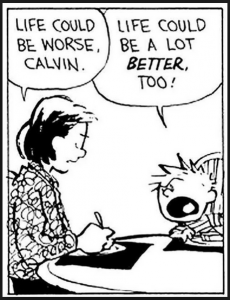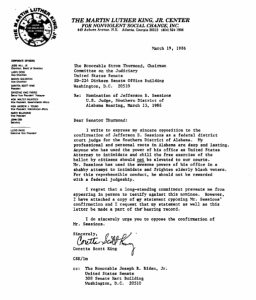Yesterday Boston was 90 degrees and the air was thick with humidity. This crowd-hating introvert was deeply sleep-deprived and had a long list of chores to accomplish. I dreaded the idea of rallying and marching in that heat with a bunch of strangers for hours. But none of that mattered as much as the fact that my federal government is kidnapping children and torturing families, and I had a chance to register outrage and encourage others to notice and react to the evil being done in our names.
Donald Trump and Jeff Sessions are waging war on vulnerable families who have lost everything. These families have dragged themselves to our doors begging for asylum, the most urgent and elemental assistance that a noncitizen can ask for. The U.S. is using terrorist tactics against children to destroy families who have marched through Hell, and is doing it as a political ploy. This is so shocking, so evil, so much like the Hitlerian tactics of World War II that I am left dumbstruck and sick to know that monsters are terrorizing babies in my name.
The people who come to our borders asking for asylum have lost friends and family members to gangs or war at home. They’ve given up their whole lives and made their dangerous, difficult ways across hundreds, even thousands of miles to pull themselves to our border crossings. All they ask is to keep themselves and their children from being murdered in their home countries. They seek refuge from violence and terror, and a chance to live and work and contribute to a society that doesn’t treat them like insects to be maligned, crushed and destroyed. Their children have already seen and experienced terrors I cannot even imagine; they are fragile, vulnerable, sick and exhausted.
And now Trump and Sessions are quite literally ripping nursing babies from mothers’ breasts, telling parents their babies are being taken away to be bathed (which is just what Nazis told Jews as they were about to be lethally gassed in concentration camps) and then sending the most vulnerable people in the world far away to live with strangers—all while failing to keep track of the locations of the parents or their children.
My government is caging children like animals, giving some of them sheets of Mylar instead of soft blankets and instructing them to lie on floors instead of beds, the cries of other children ringing in their ears as they try to sleep in their cages surrounded by strangers.
Those guarding the children are told not to hug them. At least one recording was made and played on MSNBC of a woman warning children in Spanish not to talk to those who visit the camps (including reporters) about what happened to them, implying that they might not be reunited if the children speak the truth to reporters or doctors.
Children have been seen changing babies’ diapers at detention centers. Reports say that some children are being drugged. Central and South American refugees and migrants are raped at very high rates, so chances are great that some of these children were assaulted or knew of (or witnessed) their mothers’ assaults during their escape from their home countries. Stories circulate of children being abused and assaulted at detention centers. Imagine the horror of being stripped naked, washed and examined by strangers after being taken from your family. Think of the terror of knowing that your parents cannot protect you after you’ve seen what happens to vulnerable people. And think of how many kids are being denied necessary medical care because their medical histories are unknown.
This is kidnapping. This is torture. And Trump and Sessions are engaging in this terrorism in our name.
Those who don’t care about the lives of these children and their families should turn their selfish, contemptuous, compassion-free hearts to this thought: Trump and Sessions are breeding hatred against the U.S. in the hearts of millions around the world. They are stoking a desire for vengeance against the U.S. in the minds of many who have been ripped apart from their families, and millions more who are watching this debacle from other countries.
This state-sponsored terrorism will have dangerous reverberations against America for decades to come. It will leave permanent wounds in the hearts and minds of thousands of family members personally affected by these actions, and will turn millions more witnesses to these atrocities against us. Our leaders are sowing the seeds of future terrorist acts against the U.S. by these actions. Terrorism breeds terrorism.
So yes, I managed to get up off the sofa and take half a day away from my privileged life to send lawmakers a message of support for basic human decency when children’s lives are at stake. I left my comfortable apartment to walk with friendly strangers who believe in what America officially stood for not long ago: appreciation for the strength, work ethic and inventiveness of immigrants; a better life for the descendants of enslaved and oppressed people; appreciation and sorrow for the losses Native North and South American people suffered at the hands of white conquerors; revulsion at the thought of racism, terrorism and xenophobia; and compassion for children of all colors and origins.
This last point is so basic to people of all cultures that I can’t believe it even has to be expressed. A just, good nation does not rip children away from loving, caring parents in order to torture families into giving up their only hope of staying alive after fleeing danger at home. Compassionate lovers of liberty do not defy their own established asylum laws to suddenly turn on the people we have for so many years encouraged to come to us for help.
Good people do not choose to harm children.
If you can attend a Families Belong Together march, rally or other event and be counted among those who oppose the use of federal forces to kidnap and torture children and their parents, I encourage you to do so. If that’s too difficult, phone calls or emails to your members of Congress are very important and can be accomplished in under three minutes. Donations to organizations like RAICES, the ACLU and MoveOn who are working to reunite kidnapped children with their parents are wonderful, too—even $5 helps.
Speak to your family members and friends. Let your voice be heard. You have more power than you realize to do good and make a change—so please use it to help vulnerable children avoid a lifetime of pain, fear and resentment toward an America that let this happen and has not done enough to try to limit the damage.
Friends, please stand with me against U.S. government-sponsored terrorism of children and refugee families.
Bless you. May your family be safe, intact, well and free.

